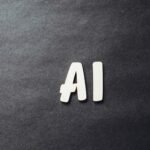The Role of Blockchain in Healthcare Data Management
Enhanced Data Security: Blockchain offers a decentralized and immutable ledger system, making it highly secure for healthcare data management. By storing data across a network of computers and using cryptographic algorithms, blockchain ensures data integrity, reducing the risk of unauthorized access, data breaches, and tampering.
Healthcare providers can leverage blockchain to protect patient records, personal information, and sensitive medical data. Interoperability and Data Exchange: Blockchain has the potential to facilitate seamless data exchange and interoperability among different healthcare stakeholders. With blockchain, healthcare providers, insurers, researchers, and patients can securely share relevant data without compromising privacy.
Smart contracts and decentralized identifiers enable authorized access and streamline data sharing, leading to improved care coordination and more efficient healthcare workflows. Patient-Centric Health Records: Blockchain empowers patients to have greater control over their health data. Through blockchain-based platforms, individuals can manage their electronic health records (EHRs), granting access to healthcare providers as needed.
Patients can track their medical history, share records securely, and even participate in research studies, fostering a patient-centric approach to healthcare and giving individuals more agency in their care. Clinical Trials and Research: Blockchain technology can revolutionize the field of clinical trials and research. It enables secure sharing of anonymized patient data, accelerating data aggregation and analysis while ensuring privacy.
Smart contracts can automate consent processes, data sharing agreements, and compensation for participants, making clinical trials more efficient, transparent, and inclusive. Supply Chain Integrity: In healthcare, ensuring the integrity and authenticity of pharmaceuticals, medical devices, and supplies is critical. Blockchain can provide end-to-end traceability and transparency in the supply chain, reducing the risk of counterfeit products and enhancing patient safety. With blockchain, stakeholders can track and verify the origin, quality, and handling of medical products, ensuring their authenticity and adherence to regulatory standards.
Data Privacy and Consent Management: Blockchain-based systems offer patients greater control over their data privacy and consent. Patients can grant and revoke access to their health information, ensuring that data is shared only with authorized parties. Blockchain’s decentralized nature eliminates the need for a central authority, putting patients in charge of their data and fostering trust in healthcare interactions.
Blockchain technology has the potential to revolutionize healthcare data management by enhancing security, privacy, and interoperability. As the industry continues to explore the transformative potential of blockchain, it is crucial to address challenges such as scalability, regulatory frameworks, and data standardization. By embracing blockchain, the healthcare industry can build a more secure, patient-centric, and collaborative ecosystem that prioritizes data privacy, transparency, and efficient information exchange, ultimately leading to improved healthcare outcomes for all.


































